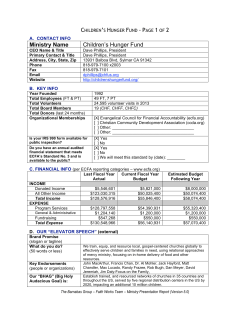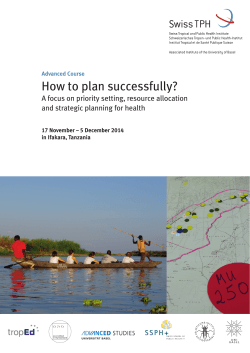
Numismatica Genevensis SA to Offer Coins
By CoinWeekOctober 1, 20140 CommentsRead More → Numismatica Genevensis SA to Offer Coins of Historical Importance in Superb Quality On 24 and 25 November, 2014, an auction in a class of its own will be conducted in Geneva, by Numismatica Genevensis SA featuring coins from antiquity and the Islamic world as well as world coins and medals including a number of rarities. Many of these are highly likely to break price records. The elegant Hotel Beau-Rivage located at Lake Geneva will be the setting for one of the most important auction sales of 2014. This is the place where Numismatica Genevensis SA will be conducting its auction sale #8 that comprises a one-of-a-kind offer. Numerous rarities from ancient times, the Islamic world, from Bavaria, Greece, Italy and Switzerland, some of which are estimated at six-digit sums, may very well set new price records. Starting with the Greek coins, they really make the connoisseur marvel. Many items come from the collection of Joseph J. Grano, who the readers of Businessweek probably know well. Like for example the emblematic stater of the Parisii whose depiction anticipate the art of modern times (Lot 6, estimate: 30,000 CHF). We may skip any reference to its state of preservation. Virtually all pieces on offer are extremely fine at least, and often an item is one of the best or even THE best preserved specimen known. A case in point is the amazing stater of the city of Panticapaeum that once was part of the collection of Russian Grand Duke Alexander Mikhailovich (Lot 31, estimate: 150,000 CHF). In direct comparison, the better known variant of this type with the expressive head of Pan, made at the turn from late Classical to Hellenistic times, almost wanes (Lot 32, estimate: 50,000 CHF). One would really like to wax lyrical, but we have to restrict ourselves. This is why we would like to mention only two other pieces here: an extremely rare gold stater of Eucratides I (Lot 59, estimate: 50,000 CHF) and an exceptional gold stater of the satrap Ptolemy I, minted in Alexandria in 312-311, that depicts the head of Alexander wearing the elephant skin on its obverse (Lot 61, estimate: 200,000 CHF). This is only the beginning! What ‘Roman Imperial Times’ have to offer easily tops the just mentioned selection! The fantastic series of perfect aurei must be addressed at this point. Just think of the rare aureus of Postumus showing Neptune on the reverse (Lot 128, estimate: 75,000 CHF). Immediately thereafter come the extraordinarily well preserved bronze coins the highlight of which is the probably finest coin bearing the portrait of Antinoos, favorite of emperor Hadrian, known to exist. It had been struck by the native town of the deceased youth, by Claudiopolis-Bithynion, where Antinoos was worshipped as a god after his death (Lot 94, estimate: 300,000 CHF). He who hears ‘Probus’ and thinks about inexpensive antoniniani first and foremost will be taught better in this auction sale: there is a gorgeous aureus of this emperor on offer, labelled by the writers of the catalog as one of the finest coins minted in the 3rd cent. A. D. It combines the imperial bust with the one of the sun god (Lot 130, estimate: 200,000 CHF). Next in line is a bronze medallion of the same ruler with full silvering whose reverse is graced by the three Monetae. Here, too, the sun god and the emperor are depicted on the obverse together (Lot 131, estimate: 250,000 CHF). If that were not enough, 79 items from a ‘Collection of Late Roman with Prestigious Pedigrees’ follow. It goes without saying that this does not refer to those little follis. The spectacular highlight of this collection – that is by no means short of highlights – is the tremissis of Olybrius. This ephemeral emperor ruled in 472, but only for a couple of months. His coins range amongst the great rarities of Roman numismatics (Lot 209, estimate: 200,000 CHF). Do you consider coins of Romulus Augustus the rarer specimens? Well, there is a solidus of him available for sale as well (Lot 211, estimate: 150,000 CHF). Anyone thinking that he has seen every highlight by now is in fact wrong. The second part of the sale comprises coins of the Islamic world. This is going to be really exciting. What price might be obtained by, let’s say, the drachm from 694 (75 AH) that depicts the praying caliph in great detail (Lot 221, estimate: 20,000 CHF)? And how about the first Islamic gold coin made after the Byzantine model (Lot 226, estimate: 75,000 CHF)? Unpublished so far was the first Islamic coin of al-Hind, on the Indian sub-continent (Lot 238, estimate: 150,000 CHF). Additionally, two of the four patterns included in the unusual set that had been made in Paris for the Moroccan ruler in 1880/1 (1298 AH) have not been documented until now (Lot 264, estimate: 125,000 CHF). 968 (357 AH) is a year which numismatics knew no gold coin minted in Oman of until now. Numismatica Genevensis is able to offer an example that was coined on an unusually broad flan thanks to which the inscription is readable in its entirety, thus revealing its historical secrets (Lot 280, estimate: 125,000 CHF). At least as rare is a heavy gold coin of the Safavids in the weight of 56.98g Sulayman I had given as a New Year’s present to a court official in Isfahan in 1685 (1096 AH) (Lot 296, estimate: 100,000 CHF). These donatives are rare even when made of silver. What will this outstanding piece obtain? Let us conclude this part of the auction preview with two rare coins from the Indian Mogul Empire. His ruler Jahangir had not only a series of gold coins minted that depict the zodiac signs on one side. Some of these he even graced with his own portrait in addition. This makes these specimens the earliest ruler portraits on Mogul coins and a very early testimony to portrait art on Islamic coins (Lot 307, estimate: 100,000 CHF). Quite another background does an extremely rare piece of the British East India Company have: in 1770 (1184 AH), a 15 rupee piece was issued that stated the name of the ruler – who, however, had not been asked for his permission in advance. Alamgir felt insulted, and the East India Company, that faced serious economic trouble in those days, chose the easier way and melted the entire emission down before it was put into circulation. Only very few pieces survived (Lot 310, estimate: 125,000 CHF). This takes us to the third part of this auction sale: world coins. ‘Last, but not least’ does not really catch what is coming next. Most auction houses would count themselves lucky if they had just this part of the auction sale at their disposal, to conduct one of the biggest sales in their entire history. Let us single out merely two rarities from the German Empire. The connoisseur discovers an extremely rare 20 ducat piece from Bavaria, issued in 1806. It is nothing less than the biggest German gold coin of the 19th century (Lot 316, estimate: 200,000 CHF). Not to omit the probably unique 10 gold gulden of Frederick William III of Saxe-Altenburg dating from 1672 (Lot 323, estimate: 100,000 CHF)! This is only topped by the very rare example of the gold pattern of the first thaler in the weight of 7 ducats from the collection of Count Arthur von Enzenberg. This piece was probably minted in 1563, on the occasion of Emperor Ferdinand I visiting the mint of Hall together with his sons Maximilian and Charles (Lot 331, estimate: 250,000 CHF). One of his successors, Leopold I, is also present, with a 10 ducat piece, minted in Breslau in 1663, one of the rarest Habsburg multiples known to numismatics (Lot 333, estimate: 150,000 CHF). Now, it is faraway Asia’s turn. It will be really fascinating to see what price a small series of gold dollars from 1916 and 1923 will obtain that were minted in the important harbor town of Tian-Tsin (Lot 354-358; estimates per lot ranging between 20,000 and 30,000 CHF). Something for the special collector only is the extraordinary collection of patterns for coins of French Indochina. The item that stands out the most is an undated essay for the tael from Hanoi from 1943 of which only two specimens are known to exist (Lot 425, Estimate: 10,000 CHF). Reference should also be made of the coins of modern-day Greece. Numismatica Genevensis is able to offer not just an example of the emission of 100 drachmae from 1876, which is extremely rare given the fact that only 76 pieces had been minted in Paris (Lot 445, estimate: 75,000 CHF), but an even rarer pattern – with as few as 5 known examples – of the emission from 1875 (Lot 444, estimate: 250,000 CHF). The rarities even grow in number when we turn to Italy. 5 out of 74 pieces have six-digit estimates, and another 8 have been estimated at sums between 50,000 and 100,000 CHF. 29 lots carry pre-sale price tags of 10,000 CHF and more. One brief look at the three ‘frontrunners’: a 10 ecu piece in gold, minted by Victor Amadeus in Turin in 1634 (Lot 463, estimate: 250,000 CHF), 50 lire of the Kingdom of Italy from 1864, that had a mintage of no more than 103 specimens (Lot 482, estimate: 250,000 CHF) and the rarest coin of the Napoleonic era, the famous 5 lire of Parma 1821, depicting the second wife of Napoleon, Marie-Louise of Austria, on the obverse (Lot 522, estimate: 150,000 CHF). Let us conclude this auction preview with one final bombshell: a 20 ducat piece from Basel, made from the thaler dies of 1741. It is the only specimen available on the market. The second known example – of poorer quality – is now housed in the Swiss National Museum in Zurich (Lot 581, estimate: 500,000 CHF). You can find the catalog on the internet at www.ngsa.ch. You may also order it at a protective fee of 50 EUR at Numismatica Genevensis SA, Rond-Point de Plainpalais 1, CH-1205 Genève, phone: +41 / 22 / 320 46 40, email info@ngsa.ch. 10 Highlights from Numismatica Genevensis Auction Sale #8 Lot 6: PARISII. Gold stater, 2nd cent. B. C. DT 79. From J. J. Grano Collection and ex NGSA 1 (2000), 1. One of the best examples known. Estimate: 30,000,- CHF Lot 31: PANTICAPAEUM (Black Sea Region). Gold stater, around 360-350 B. C. Anohin 91. From the collection of Grand Duke Alexander Mikhailovich and the J. W. Garrett Collection. Extremely fine. Estimate: 150,000,- CHF Lot 59: EUCRATIDES, King of Bactria 170-145. Gold stater, Pushkalavati. Mitch. Type 176var. From the J. J. Grano Collection and ex NGSA 2 (2002), 67. Extremely fine. Estimate: 50,000,- CHF Lot 61: PTOLEMY, Satrap of Egypt 323-305. Gold stater, 312/1, Alexandria. Unpublished. Extremely fine. Estimate: 200,000,- CHF Lot 94: ANTINOOS. Bronze medallion, Bithynion. Blum 8, pl. II. 15. Ex Giessener Münzhandlung 76 (1996), 310. The finest coin bearing the portrait of Antinoos known to exist. Estimate: 300,000,- CHF Lot 128: POSTUMUS, 259-268. Aureus, 260-268, Lyon. RIC IV/3, 339, 30B. Rare. Extremely fine. Estimate: 75,000,- CHF Lot 130: PROBUS, 276-282. Aureus, Siscia. RIC IV/3, 80, 596(corr). Extremely rare. One of the finest coins of the 3rd. cent. A. D. Estimate: 200,000,- CHF Lot 131: PROBUS, 276-282. Bronze medallion with silvering. Gnecchi II, p. 119, cf. 33 and pl. 121, 3 (same die). From the William James Conte collection, NAC 51 (2009), 402. Probably the finest medallion of the 3 rd cent. A. D. Estimate: 250,000,- CHF Lot 209: OLYBRIUS, 472. Tremissis, Milan. RIC 3004. From the collections Ponton d’Amécourt , Jameson 538 and Mazzini. Extremely rare. Very fine. Estimate: 200,000,- CHF Lot 211: ROMULUS AUGUSTUS, 475-476. Solidus, Rom. RIC 3404. From the Millenia Collection. The finest coin of the last king of the Western Roman Empire known to exist. Estimate: 150,000,- CHF
© Copyright 2025












